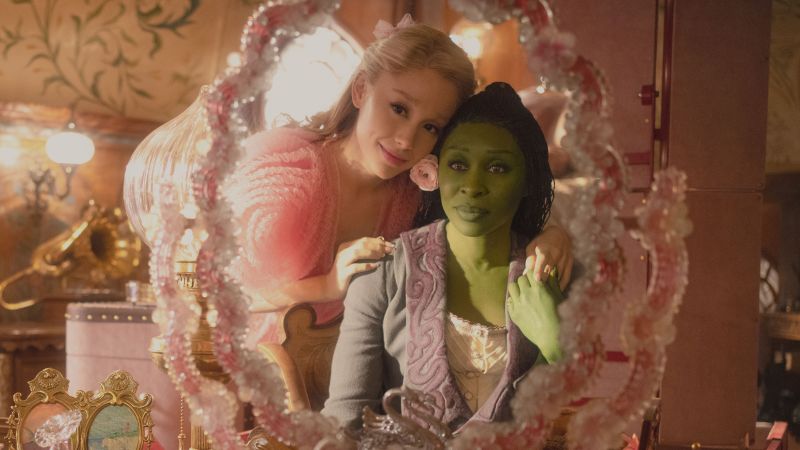London
CNN
—
The latest installment of the Donald Trump Cinematic Universe has an audacious plot line: The protagonist wants to put a 100% tariff on all movies made abroad to restore a troubled American film industry to its former glory.
But the critics aren’t impressed.
“The idea is dumb,” Howard Berry, a film historian at Britain’s University of Hertfordshire, told CNN. “Tariffs aren’t going to revitalize a beleaguered industry in Hollywood. Tariffs are just going to make films more expensive to make, and so we’ll have fewer of them.”
Last week, the American president said he had instructed US commerce and trade authorities to place the hefty levy on movies produced abroad to revive a “dying” Tinseltown. The announcement marks the first time Trump has targeted services rather than goods with his tariffs.
Trump may be right about one problem: As countries such as Canada, Ireland and the United Kingdom have lured US filmmakers with generous tax incentives, many Americans in the film industry have been left short of work.
Major streaming platforms have also tightened their belts in recent years as they look to make a profit, rather than simply throwing money at new content to attract subscribers.
But Trump’s solution — slapping tariffs on what is often the product of international partnerships involving American filmmakers — will be both hard to implement and ineffective, industry experts told CNN.
Here’s why a return to Hollywood’s heyday may just be the stuff of movies.
Much like an American car needs parts from abroad, so too do Hollywood films rely on people and places overseas — and increasingly so.
Berry at the University of Hertfordshire gave the example of “Mission: Impossible — Fallout,” a 2018 film co-produced by companies based in the United States, China, Norway and France, with some scenes filmed in the UK.
“You look at the opening titles and you see about five production logos before you get into the start of the film,” he said. “China’s Alibaba Pictures is one of the (logos) right up there at the front.”
Kirsty Bell, the chief executive of Goldfinch, a British film production company, argued that the international nature of many movies makes it very difficult to pinpoint their country of origin.
“If you shot a week in the UK, a week in America and a week in Canada, what nationality is the film? And then you do (post-production) in the UK. Where does that leave you?” she told CNN.

High-profile examples of so-called “runaway production” — a term describing the flight of movie production from California, the home of Hollywood — can be found in the UK. “Wicked” and “Barbie,” two of the biggest blockbusters of recent years, were principally shot in studios in the south-east of England.
According to the British Film Institute, last year, major American film studios and streaming platforms spent more than $1.8 billion producing movies in the country, a rise of 49% from 2023.
Britain’s Sands Films is one beneficiary of spending by the US film industry. The film production company made the costumes for the 2019 movie “Little Women,” directed by Greta Gerwig. That film was “very American,” said Olivier Stockman, the company’s managing director.
“Culturally, (it was) an American project, and it was shot in America,” he told CNN. “(But) they still ask us to make the costumes.”
“(Americans) haven’t lost the position of being the makers or the funder of films,” he said, noting that the majority of companies buying services from Sands Films are American-owned. American films are simply no longer made “on American soil,” he added.
Making movies is expensive and, if filmmakers can spend less money enlisting talented workers outside of America to shoot and edit their movies, that’s exactly what they’ll do, argued Berry, the film historian.
The most effective way to bring productions back to Tinseltown, he said, is not to make it more expensive to produce films elsewhere (which would simply lead to fewer films being made) but to make it cheaper to produce in the area.
Marina Hyde, the co-host of “The Rest is Entertainment,” a podcast focusing on the TV and movie industry, noted recently that labor costs in Hollywood are “very high.”
“(Americans) don’t have universal healthcare, they don’t have a federal pension… so you have to keep wages high,” she argued on last week’s edition of the podcast.
Jay Sures, vice chairman of California-based United Talent Agency, also told CNN that high labor costs and “lack of rebates” in the US mean it’s “infinitely cheaper” to make films overseas.
Similarly, the office of California Governor Gavin Newsom said in October that, between 2020 and 2024, the state had lost TV and film production spending because of “limited tax credit funding” and “increased competition in other states and countries.”
And last week, Newsom called on Trump to work with California to create a $7.5 billion federal tax credit for the movie and TV industry. Currently, tax incentives in the US are exclusively the realm of states and municipalities.
Last year, film production in Greater Los Angeles fell 5.6% compared with 2023, as measured by the number of shoot days in the area, according to industry group FilmLA. Only 2020 — upended by the coronavirus pandemic — logged a lower level of production, it noted.
However, that drop is only partly explained by “runaway production,” FilmLA said, with a slow recovery from 2023 labor strikes and a broader industry contraction also playing a part.
Ben Charles Edwards, head of production at Goldfinch, the British film production company, thinks more incentives such as tax breaks would help entice filmmakers back to the area.
Trump’s tariff threat is “potentially a knee-jerk reaction to an industry over there that isn’t the same as it once was,” he told CNN. “This isn’t the answer.”

